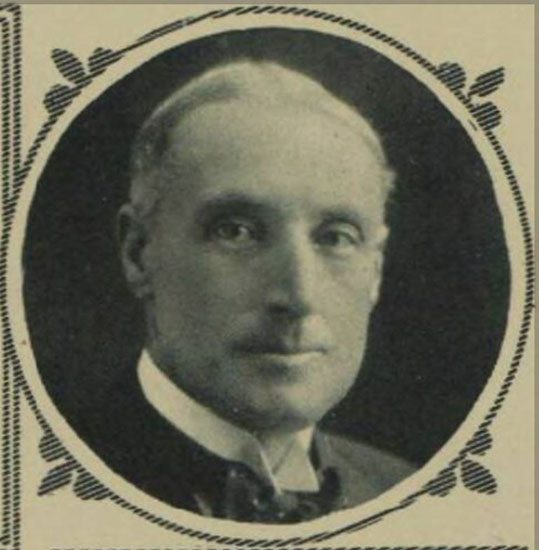Robert Gee’s attempt to gain a seat in the 1918 general election as a National Democratic Party candidate was unsuccessful. His second chance came in the 1921 Woolwich East by-election, when he stood against the Labour Party candidate Ramsay MacDonald. The contrast between Gee as a Victoria Cross holder and MacDonald who was regarded as a coward for not having fought in the war generated considerable interest, and was used by Gee to his advantage. ‘Above everything’, he declared in a rousing address to the electors, ‘I stand as a Briton, a lover of my own country, and a confident believer in its power for good in the destiny of the world. I am desirous on this, and on every other occasion, of preventing mischievous men from entering the House of Commons, and particularly those who, in time of stress and peril, did nothing to help the common cause, and to back the men who were fighting their country’s battles.’ Gee’s strategy worked, and he won the seat by 683 votes. He lost his seat in the general election of 1922, but won it back two years later when he was elected MP for Bosworth.
However, behind the façade of his political success, Robert Gee’s personal life was spiralling out of control. The physical and psychological injuries he had sustained during the war showed no signs of healing. The strain caused by his electoral win in 1921 took a heavy toll. ‘I had to be up nearly all night with him’, his wife Betty wrote to Mrs Armstrong, ‘his nerves were terrible – I was really afraid of his brain – the paper men & photographers were awful, well it’s all over & we won, but oh dear it’s awful to see him he went to Breakfast at 10 Downing Street & came home so white and fainted dead off.’
To add to Robert’s problems, the pain caused by his head and stomach wounds was treated by doctors with injections of heroin, to which he became addicted. He began to suffer from violent mood swings, offending many of his friends through his ill manners, and ending up being sued for slander by members of the Council of the Royal Society for the Prevention of Cruelty to Animals. He began an affair with one of his wife’s friends, and when she found out about it he tried to kill her. In July 1925, he collapsed three times in the House of Commons, and was ordered to take a rest from parliamentary duties. He sold everything he could get his hands on and sailed for Australia with his mistress, leaving his wife and daughters destitute. He purchased two thousand acres of bush in Western Australia and converted it into a wheat farm. After two years, he announced his retirement for British politics and settled permanently in Australia.
Robert Gee returned briefly to England in 1956 to attend the centenary celebrations of the Victoria Cross. He returned to Australia, where he died in a rest home in Perth on 2 August 1960 aged 84. His estranged wife Elizabeth died three months later on 7 November in Tankerton, Kent.
Robert Gee’s Victoria Cross is displayed at the Royal Fusiliers Museum in the Tower of London.

